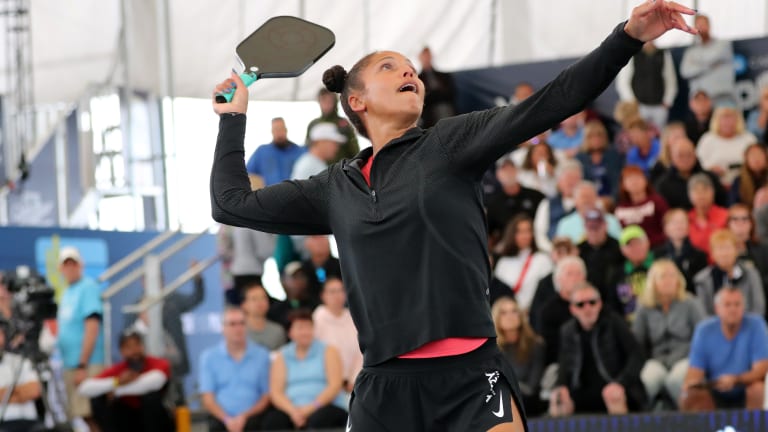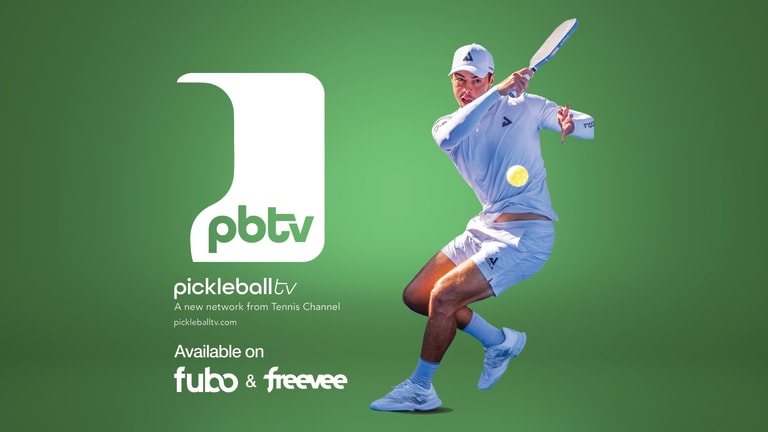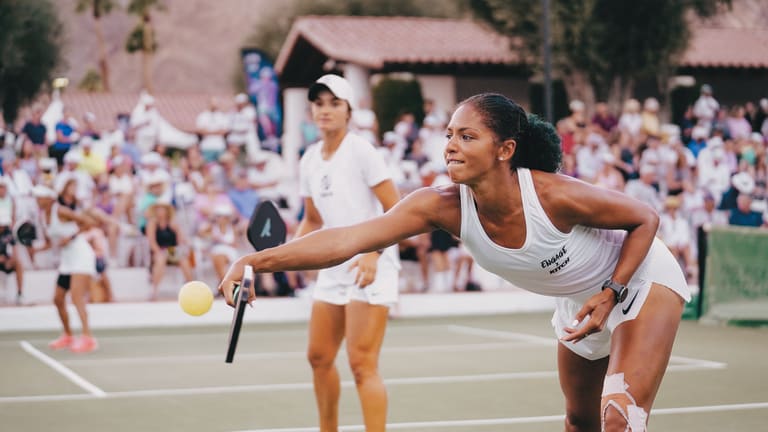PBTV is now streaming live on Freevee and pickleballtv.com. For more information on the new television network dedicated to pickleball, click here.
pickleball
The Process: How Jessie Irvine took her tennis game to the pickleball court
By Nov 07, 2023pickleball
Jack Sock to play Donald Young in San Clemente pickleball match
By Jun 18, 2025pickleball
New pickleball series ‘How I Met My Partner’ recognized at Denver Film Festival
By May 09, 2025pickleball
Andre Agassi wins pro debut match with Anna Leigh Waters at US Open Pickleball Championships
By Apr 30, 2025pickleball
Andre Agassi to make pro pickleball debut with Anna Leigh Waters at US Open Pickleball Championships
By Apr 24, 2025pickleball
Andre Agassi will play at US Open Pickleball Championships
By Apr 22, 2025pickleball
Genie Bouchard, Donald Young, Jack Sock, Sam Querrey headline doubles at PPA Veolia North Carolina Open
By Apr 04, 2025pickleball
Jack Sock earns first-career silver medal at PPA Red Rock Open
By Mar 31, 2025pickleball
PPA Red Rock Open claims Sam Querrey, Jack Sock and Eugenie Bouchard in opening round of doubles
By Mar 29, 2025pickleball
Jack Sock, Eugenie Bouchard lose in mixed doubles at PPA Red Rock Open ... but are not out of the tournament
By Mar 28, 2025The Process: How Jessie Irvine took her tennis game to the pickleball court
She had every reason to give up on her dreams, but this one-time tennis grinder found unlikely salvation in pickleball.
Published Nov 07, 2023

© 2023 Bruce Yeung
Advertising

Tennis Channel and the PPA Tour have created Pickleballtv, a standalone pickleball channel, along with separate websites and apps solely dedicated to the sport.
Advertising

Irvine moved to Florida to train at the Evert Tennis Academy and the Rick Macci Tennis Academy during her teenage years before ultimately turning to pickleball.
Advertising
Advertising

What's coming up on PBTV? Find out here.